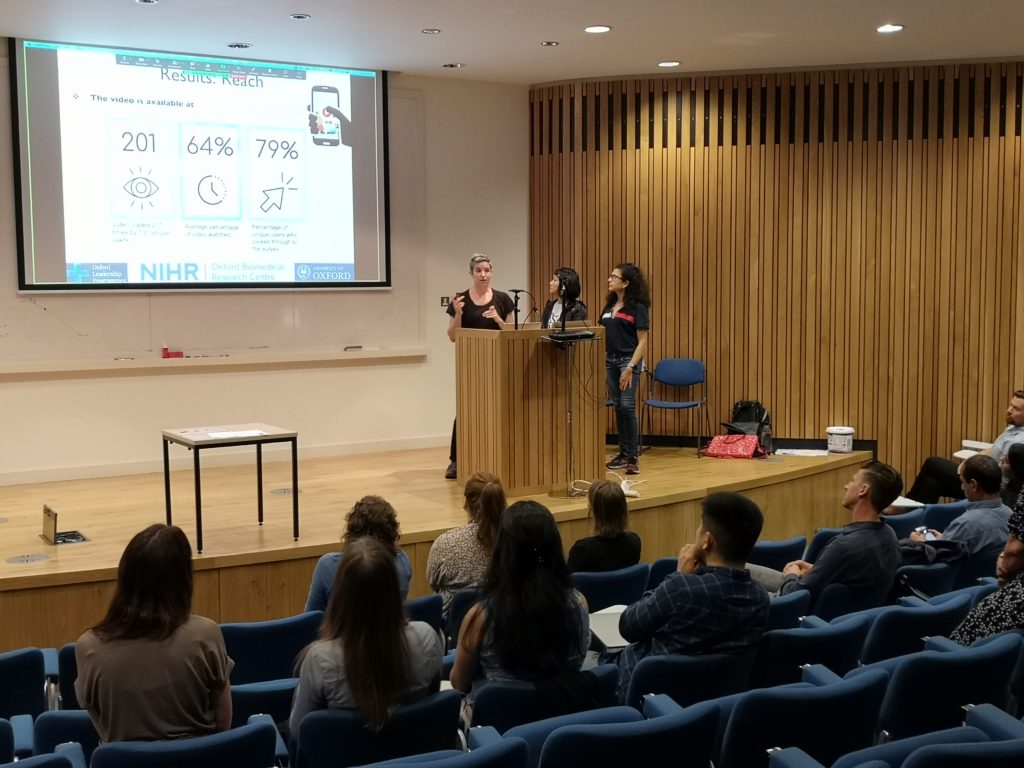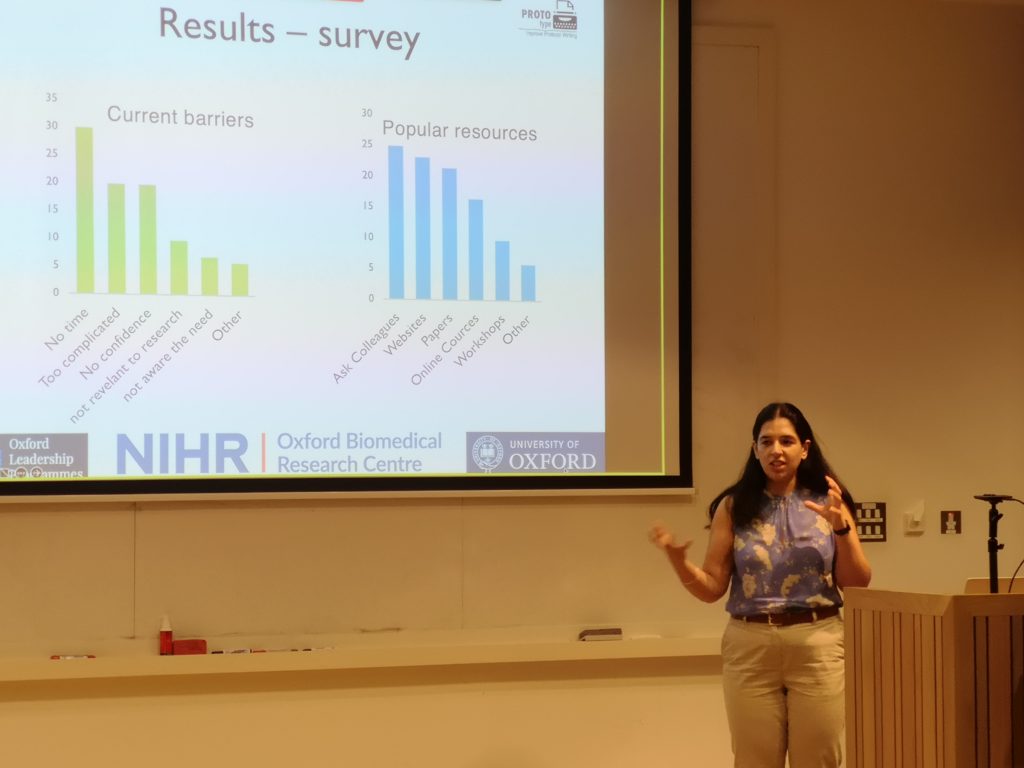Aspiring healthcare research leaders have successfully completed the latest Oxford BRC Next Generation Leaders Programme, with the 16 course participants presenting the quality improvement projects they had been working on.

This is the third edition of the Next Generation Leaders Programme, which was commissioned and designed by the Oxford BRC to enable early to mid-career researchers and health professionals to develop key skills in leadership and management capability.
The six-month programme ended on 2 September at the University of Oxford’s Richard Doll building with the participants unveiling the outcomes of the projects they had been working on as groups. The topics they worked on were:
- Health economics for research translation and grant writing
- Improving awareness of equality, diversity and inclusion (EDI) activities
- Improving research protocol writing and
- Developing a tool to report on patient and public involvement and engagement
These leadership projects are intended as tangible improvements to be implemented by the BRC. As well as these team leadership projects, the participants attend monthly skills workshops, where they can discuss leadership topics with senior leaders.
The final session included a question-and-answer session with the Oxford BRC Director, Professor Helen McShane.
One of the participants, Sarah Vollam, a post-doctoral nurse researcher, said: “This programme has given me a lot of space to reflect on my leadership, to meet and learn from peers from different backgrounds, and discuss leadership and what it means with them. It’s really empowered me to recognise and be comfortable with my style of leadership and to realise that’s it’s a valid way of leading.”

Paula Dhiman, Senior Researcher in medical statistics in the Centre for Statistics in Medicine, added: “It has given me an awareness of the different leadership strategies out there, and that you are not born a leader, it’s something than can be trained and learned. I found that really helpful.
“A lot of the theory was really useful. But they also provided the opportunity for each of us to reflect individually on what works for us and what doesn’t. The exposure to different management strategies and leadership styles was really helpful as I move forward with my career.
Binnie Samuel, a deputy charge nurse at the COVID-19 challenge study, commented: “Doing this course for the last six months has done my confidence the world of good and opened up a lot of new avenues for me. I would certainly recommend people to go on it.”
The Next Generation Leaders Programme Co-Director, Mary Fenwick, said: “We find that what underlies people’s motivation for doing a programme like this is confidence. The way we instil that confidence is we give them a small amount of formal learning, like the latest thinking about leadership theories and team dynamics, but more important is how they apply that in practice and that’s why this is a project-based programme.”
The Next Generation Leaders Programme is derived from doctoral research in Oxford about how to evaluate the effectiveness of leadership programmes, Mary says: “This is one of the most evaluated leadership programmes in the world. Everything we’re doing in this programme we do because it works.”
She adds that each iteration of the course aims to build on its predecessors: “Every time we run a programme, we take feedback from the previous programme. Participants from the previous programme came and presented to this year’s group. The learning is compounding over time. We’re
seeing it becoming more embedded and more sustainable over time, which is really encouraging.”
The Next Generation Leaders course was commissioned and established by Oxford BRC Chief Operating Officer Dr Vasiliki Kiparoglou and Senior Manager Dr Lorna Henderson, who identified the gap in research leadership at this level.
Dr Kiparoglou said: “We are delighted to see projects that have demonstrated applied learning in the leadership sphere. Dr Henderson, who mentored the group who carried out the EDI project, said: “I am particularly pleased to have mentored this group, who were incredibly committed and enthusiastic. They identified a number of opportunities to improve and embed our work on EDI in an applied way. EDI awareness is an important tool for leaders, and we can use their project to inform others more broadly.”